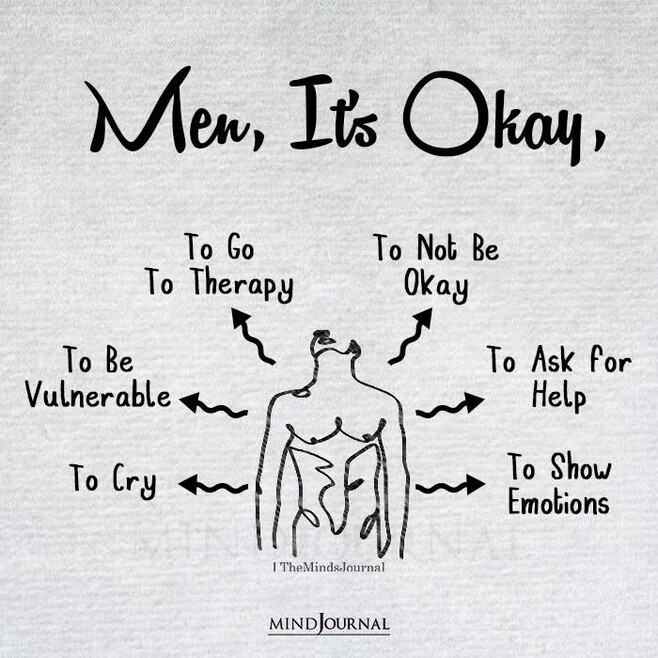How Can Men Strive in Relationships?

Do you shut down when in a conflict? Are you having difficulties communicating with people in your life? Are you having a hard time expressing your emotions?
Perhaps the feeling of anger, frustration, or sadness is a bit weird for you, so you end up being silent in arguments or heated conversations. Many men feel this way, too. In this article, we’ll talk about why men may appear this way, and give four tips for men to recover and strive in relationships.
Why do some men struggle in relationships?
“Some men struggle in relationships because they don’t know how to express their emotions and don’t know how to communicate their problems,” says Mark, a mental health therapist and the facilitator of the Strive: Men’s Healthy Relationship Group.
Most men don’t know how to express their emotions because of the gender stereotype that they should avoid their uncomfortable emotions.
“Men are socialized to avoid feelings or to competitively/boldly express their feelings,” Mark added.
This view of not knowing how to express their unwanted feelings and this socialized way men are viewed may lead to aggressive anger, shouting, and shutting down during conflict, significantly affecting their relationships (whether romantic, professional or family).
The reality is that men are human too! It seems pretty obvious, but we sometimes have to point it out. Men feel sad, anxious, frustrated, and angry too. The key for men is to learn to show their emotions in a kinder yet more secure way.

Four relationship tips for men
- Accept your emotions
Accepting that you can cry, feel anxious, overwhelmed, angry, and experience these uncomfortable emotions is the first step! You can move on to the next tip once you’ve accepted that you, a person who identifies as a man, can show these emotions and still be a man.
- Know when you are heated up with emotions
Do you get sweaty when emotions build up? Do you take lots of deep breaths? Do you clench your fists? What are some things you notice in your body when you are emotional? Take note of that.
- Try not to walk away or be bold in expressing your emotions
Once you know your emotions, try not to do what you usually do (like walk away or speak loudly). You might think, “well, it’s easier said than done.” That’s true! If you try to stop the argument and walk away from the conversation, you could be interpreted by your partner or the person you are talking to as disrespectful or someone who does not care. This could escalate the situation. On the other hand, your boldness (whether raising a voice or standing taller) can be seen as an attack, which can end up in a big argument.
You can do these things instead of walking away or forwardly expressing your feelings:
- Be aware when you are heated up with emotions
- Inform the person you are talking to that you are starting to be flooded with your feelings
- Tell them you need a break to gather your feelings
- Come back to the conversation when both of you are ready and calm
- Join Strive (a men’s group)
When you join Strive, you can get tips from an experienced professional and other men in a similar situation.
You may realize many things like the following:
- the relationship you are having trouble with is not the best for you, and you choose to cut ties with people that do not serve you well
- you really want to cherish this relationship because you think it’s good for you, and you may want to improve yourself
